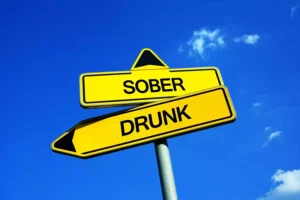
With that said, some research suggests that people who drink alone as teenagers are likely to develop AUD as adults. If you do drink alcohol, you can send your child powerful messages by drinking occasionally, in moderation and only with other people around. The combination of alcohol and drugs (including cannabis) can also lead to increased risk taking.
Teenage Alcoholism
Social media, in particular, can make your child feel like they’re missing out by not drinking or cause them to feel inadequate about how they live their life. You can help by educating your child on how social media portrays a distorted, glamorized snapshot of only the positives in a person’s life, rather than a realistic view that includes their daily struggles, such as unhealthy alcohol use. If you’ve discovered your child or teen is drinking alcohol, it’s normal to feel upset, angry, and worried. Underage drinking can have serious implications that may not show up until later in your child’s life. Over the past 15 teenage alcoholism years, teen alcohol use has been declining for the most part.

Alcohol and the Adolescent Brain
- The amount of alcohol that teens use can vary widely depending on a number of factors, including their age, gender, social environment, and personal experiences with alcohol.
- According to a journal news release, “Alcohol use was implicated in 327 of all the e-scooter and e-bike injuries; substance use was implicated in 116; and both alcohol and substance use were implicated in 39.”
- The State of Victoria and the Department of Health shall not bear any liability for reliance by any user on the materials contained on this website.
- The legal drinking age in the United States is 21, but many teens have access to alcohol much earlier than that.
- Teen and college-age men are the most likely victims of a micromobility vehicle accident, the study also found.
- Similarly, high school binge drinking statistics show that most high schoolstudents who drinktend to binge drink.
If your child is going to be around alcohol with other young people, it’s safest for your child not to drink alcohol. If your teenage child is using alcohol or other drugs – or you think they might be – it’s important to look for the signs. You might also =https://ecosoberhouse.com/ need to get familiar with support options and resources for your child.
Factors Contributing to Adolescent Alcohol Use
You can start byreaching out to usand we’ll help you take it from there. However, occasional teen alcohol and drug abuse can quickly escalate into teen addiction and have an impact on your home life. Wesurveyed 2,136 American adultswho either wanted to stop drinking alcohol or had already tried to (successfully or not). We asked them about their alcohol use, reasons for drinking, alcohol-related outcomes, health and more. Mental-health professionals should not minimize the approach to those who have drug addiction treatment experimented with alcohol, since infrequent use can progress to the more serious stages of alcohol use if not addressed. For youth in the first stage of alcohol use (having access but not having yet used alcohol), preventive measures are used.


But in combination with alcohol, which also lowers inhibitions, it can result in impaired judgment. The younger a person starts drinking, the more likely they are to notice effects on their cognition and memory, which may last into adulthood. Adolescents tend to drink if the adults around them drink or binge drink alcohol. Additionally, the NIAAA notes that people who start drinking before age 15 are more than three times as likely to develop AUD as an adult than people who waited until age 21 to start drinking.
Signs of Teenage Alcoholism
- Calls to any general helpline will be received by Pinnacle Health Group or Still Behavioral Health Group, both of whom are paid advertisers.
- Underage drinkers consume about90%of their alcohol during binges.
- In all too many cases, they wake up in the hospital after a car accident — or don’t wake up at all — and seriously injure unsuspecting passengers, people in other cars or pedestrians.
- Teen drinkers also are more likely to get fat or have health problems.
- “Younger individuals are more likely to be intoxicated, and this impairs their mental and physical health, leading them to engage in risky activities while riding these micromobility devices that can result in injuries,” the researchers said.
- This means they’re at risk of accidents and injuries or being involved in violence.
Providers can guide parents and concerned teens to the right facility with adolescent treatment programs and cutting-edge therapies. Because the drinking age in the US is 21, alcoholism is often thought to be an adult issue. Despite this, teenage alcoholism is a very real and common problem.
- In addition, high school students who drink are alsomore likely to drop out of school.
- Mental-health professionals should not minimize the approach to those who have experimented with alcohol, since infrequent use can progress to the more serious stages of alcohol use if not addressed.
- At high levels, alcohol can make people unconscious or stop them breathing normally.
- Talk about alcohol addiction with them and consider getting them professional help if they need it.